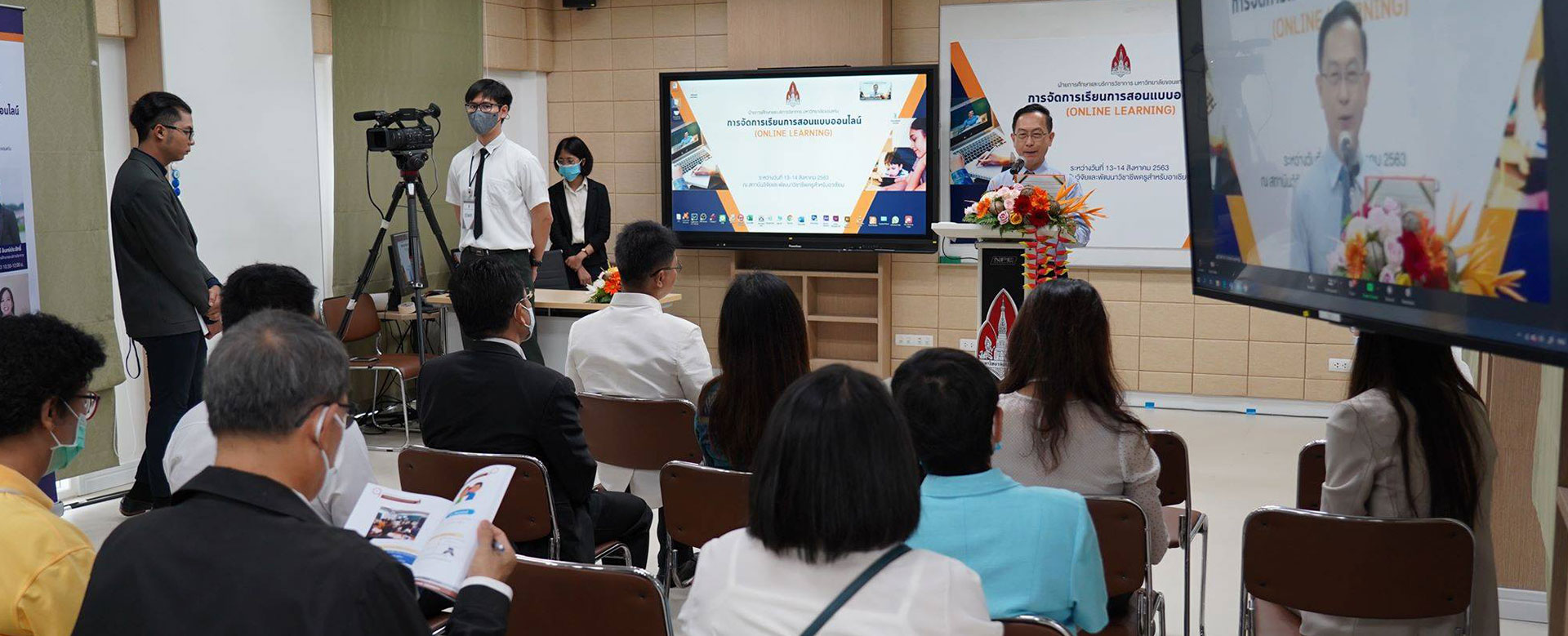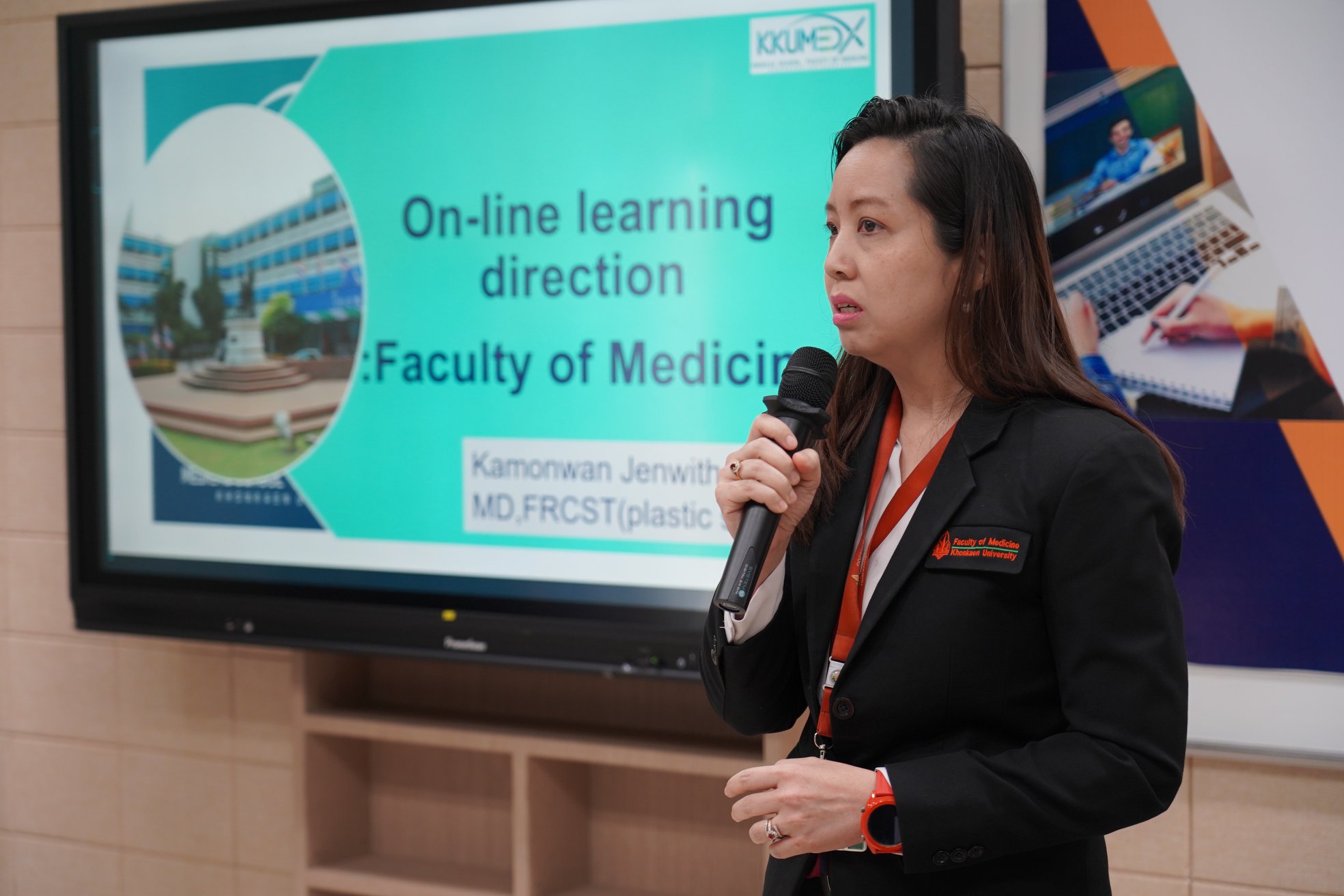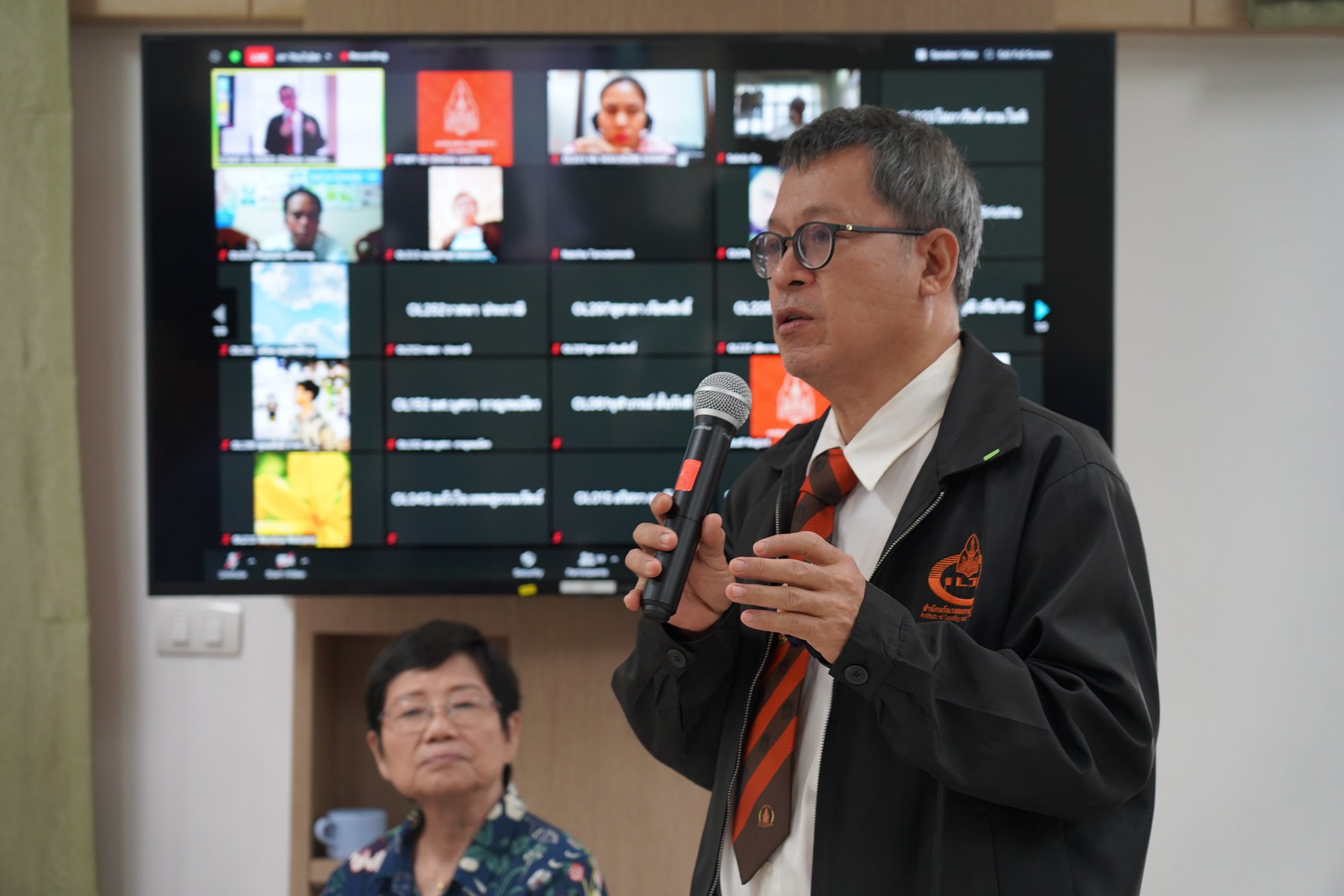

August 13-14, 2020
August 13-14, 2020, at IRDTP for ASEAN Building, Khon Kaen University - Education and Academic Service Section, Khon Kaen University held an opening ceremony for the Online Learning Workshop. Associate Professor Charnchai Panthongviriyakul, President of Khon Kaen University presided over the opening ceremony. Associate Professor Maitree Inprasitha, Vice President for Education and Academic Services made a reporting speech. A total of 410 lecturers and students participated in the workshop, 353 participants joined the online through ZOOM and YouTube live applications while 57 participants participated on-site, which was at the smart classroom of IRDTP for ASEAN building.

The opening session began from the reporting speech given by Associate Professor Dr. Maitree Inptasitha regarding the background of the Online Learning Workshop. The emphasis of the needs of online learning due to COVID-19, for example, a new teaching and learning condition emerged for all levels of education. Physically, the teacher and the students can no longer follow the classroom-based Instruction. Social Distancing has to be adopted and instruction has to be based on Distance Learning, which is now known as Online Learning. Moreover, he also highlighted that Khon Kaen University organized this Online Learning Workshop under the New Educational Paradigm Development Project so that Khon Kaen University lecturers, educators, students, and any individuals will understand and be able to visualize the Online Learning approaches which also are based on Sustainable Development Goals (SDGs) in this Digital Transformation Era.
On the other hand, Associate Professor Charnchai Panthongviriyakul, President of Khon Kaen University indicated the current target of Khon Kaen University on “Education Transformation”. The rationale behind this is that the fact of Thai universities carries out teaching and learning like primary and secondary classrooms, that is, teaching students to memorize the knowledge without thinking. That only means transferring knowledge from the teacher to the students. But now, things have changed. Knowledge is everywhere in the world of the Internet. Teachers do now know all. Students can search and thus know as much as or even more than the teachers. Therefore, time is already gone for teachers to teach the content to the students. Therefore, online lectures must incorporate thinking skills. How can students search for more knowledge? Is it teachers who construct knowledge for them, or is it the students themselves to do so? In this era, we want the students to be smarter than the teacher and to know more. This means that teacher has to change the role from teaching to coaching, who creates the process for giving suggestions and assistance. Teachers outdo the students in terms of experience and knowledge application. Teachers should therefore be able to screen true knowledge for the students. This can happen both online and onsite.
He gave an example of an activity arranged by the Business School at Harvard University, where the teacher has the students search for knowledge and has the criteria to check if the students understand the content and the theories. This activity is called “tutorial hours”, which are online meetings or onsite meetings. The teacher asks questions, and students answer in their team. Smarter students tutor the weaker ones in a so-called Team-based Learning style. With this, an unexpected outcome is the ‘Communication Skill’ – another trait of the new-era graduate of the 21st Century. He continued to mention the importance of teachers to set the strategy for students to learn. Online learning is one strategy. It is the simplest approach in the COVID-19 situation. Any ready teacher can create an online lesson. Students can learn at any time in any place. It will make life easier. However, there should be sessions where the teacher and the students meet, which can be online or onsite. In these sessions, the teacher and the students can talk and discuss. Lectures are turned into chatting and exchanging, just like the ‘tutorial hours’ at Harvard University. One thing that we should not forget about online teaching or producing online lessons is that we want students to build knowledge on their own. The more difficult thing than online teaching is evaluation and assessment. When we change from a teaching paradigm to a learning paradigm, we must be able to assess. Otherwise, all will fail. If we teach students to be able to think, but we still assess memories, learning will never take place; students would memorize to pass the examination. That must be changed. He emphasized at the end that education transform does not mean that online teaching outdoes onsite teaching. However, both are only tools in learning management. Teachers should not forget that what is more important is how to make students think, how to make them become able to synthesize knowledge.
The Online Learning Workshop was organized on August 13-14, 2020. Followings are the main activities:
1) A talk on “Teaching Preparation for Online Classroom” by Professor Yutaka OHARA, an expert from Kanto-Gakuin University, Japan
2) A talk on “Online learning in the Digital Era” by Associate Professor Dr. Maitree Inprasitha, Vice President for Education and Academic Services, Khon Kaen University
3) A talk on “A Practice of the University of Tsukuba of COVID-19: with the cases of Tsukuba and Waseda Universities” by Professor Dr. Masami Isoda, an expert from Tsukuba University and Director of the Center for Research on International Cooperation in Educational Development (CRICED)
4) A talk on “On-line Learning Direction: Faculty of Medicine” by Associate Professor Kamonwan Jenwitheesuk, Associate Dean in Academic Affairs, Faculty of Medicine
5) Exhibitions related to Online Learning
























